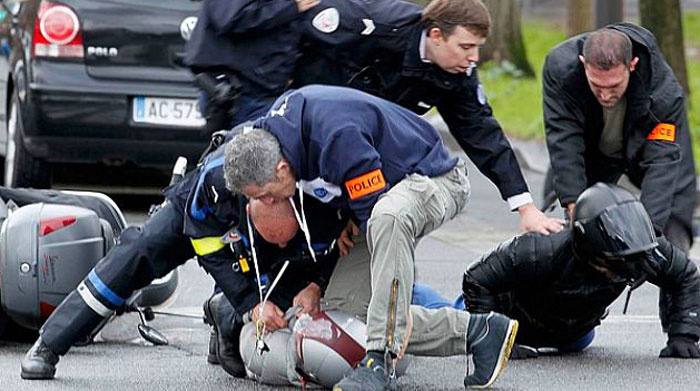Laws That Inflame Radicalism

The attacks made by armed individuals against the satirical weekly Charlie Hebdo in Paris led to the death of 12 people. This is while two other events which had happened prior to this incident had kept France’s security apparatus busy; an attack made by a man equipped with a cold weapon who is said to be Muslim in the city of Joué-lès-Tours against a police officer and the other in the city of Dijon when a man, who, again, was said to be Muslim, attacked pedestrians with his car. Two points must be considered in the analysis of these incidents:
France has the biggest Muslim population in the European continent.
The laws of this country are based on secularism and according to the laws of immigrants, they have to adapt themselves with French values.
On one hand, France is among the European countries from which some citizens joined ISIS. In addition, conversion to Islam among the French has been one of the challenges of the French government during recent years. Nonetheless, this country’s media published such cartoons on the basis of secularism and freedom of the press.
Nevertheless, France’s political atmosphere must be more accurately studied. At the present time, a minority of about 6 million Muslims live in France. The government of France expects these immigrants to accept French values, which are based on secularism, and change their lifestyle. This expectation has not yet been met and the Muslim minority has not been attracted to French society. This issue has led to the existence of certain deprivations and discriminations against the Muslim minority to which they have reacted. On the other hand, the insults made against Muslims’ sacred issues have angered them and created a cycle of violence. The incidents of the recent days are among those radical measures that cannot be justified in any way or form. But the fact is that the ruling conditions on the atmosphere of France’s domestic policies have caused these minority groups to be inclined towards this path.
Furthermore, since the emergence of ISIS and its terrorist measures in the Middle East, French citizens were seen to be active in this group. The issue of creating balance between the secular political system and the Muslim religious community is important. Nonetheless, perhaps the most important reason behind the occurrence of these recent events in France could be considered to be the result of the failure of France’s policy in attracting immigrants. This issue has prepared the ground for tendencies towards radicalism. The policies of the French government regarding the attraction of immigrants are based on the dissolution of the Muslim community in society. This policy asks Muslims to put aside their values and accept French values in their totality. But this matter is not possible.
On one hand, the challenges which were created in French society are caused by the domestic policies of the government which have led to the exertion of pressure by the radical rightist groups on the immigrants through the adoption of more difficult immigration laws. Radical rightist groups demand more supervision and control over the traveling of immigrants. Of course, such an outcome is natural after the recent violent incidents. If the government and the domestic groups decide to establish more limitations and new restrictions against the Muslims, this policy would certainly be turned into an element to inflame the cycle of violence.
What has been said about the recent incidents in France is viewed from the domestic aspect; in order to better understand the issue, France’s foreign policy particularly the Middle East developments must be taken into consideration. France has established close relations with certain countries including Saudi Arabia and Qatar during recent years and signed arms deals. Qatar has made considerable investments in France. These are the two countries which are known in the region to be the main supporters of the radical groups in the Middle East. That is why France should review its relations with these countries in order to eliminate radicalism inside the country.

